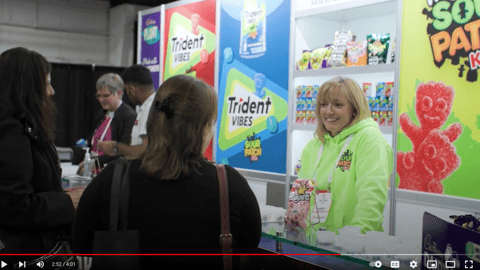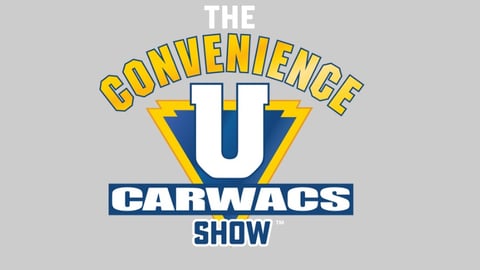Leadership, AI, economic confidence and beer in c-stores: Highlights from Day 2 of the C-store IQ Conference at The Convenience U CARWACS Show
The C-store IQ Conference on the second day of The Convenience U CARWACS 2024 show in Toronto focused on the demographic changes happening in the workplace and how technology can help c-stores attract and retain top talent.
Tina Varughese, a DEI expert, pointed out that today’s workplaces are changing with younger workers shifting the cultures and work environments they work in and seek to be part of.
Varughese pointed out millennials now make up 33% of today’s workplace population, gen x close behind with nearly 30%, with baby boomer coming in at 19.7% and gen Z at 17.6%. And each of these demographic generations work better with different kinds of leadership styles: boomers tend to relate better to leaders in organizations who are democratic and consensus building; gen X look for leaders who are participatory in their leadership style; millennials look for collaborative leadership; and gen z want leaders who are inclusive.
What this means for workplaces is that managers and team leaders may need to step back and take a closer look at the demographic makeup of their teams and workplaces and adjust their leadership style to make sure they are find ways to lead that bring onboard those workers who younger and may find your traditional style of leadership not working for them.
“If you have a lot of millennials you might want to be a little bit more informal, such as wearing jeans and using a laser pointer,” she says. She adds that while the traditional default method of communications in companies still is email, younger workers tend to use other tools, Snapchat as one example, and you should be looking at how to incorporate such tools into internal communications so younger works are included.
This seems to some a bit silly, she suggested but she remined that younger workers place a high premium on workplace culture.
“We need to recognize that workplace culture is more important than ever,” she says. “For example, positivity will add 12% more productivity while a negative workplace culture will decrease productivity by some 10%. So, you should not neglect fun and laughter in a workplace. Today, 54% of employees say they will choose a positive workplace culture over salary.”
Other important things that companies and leadership teams need to understand is the different personality types that can exist in a workplace. While a leader may be highly extroverted, worker or other team leaders may be more introverted in their approach. While it is traditional to think of extroverts as more natural leaders, introverts bring many important leadership qualities such as their ability to listen, to give others a chance to add their ideas to the mix and to step aside to give others the spotlight when they have succeeded.
Technology to keep ahead of trends
A key theme at the conference was how AI is changing how companies identify emerging consumer trends. Like all industries today, AI is rapidly changing how companies do their work.
Dr. Janice Rudkowski, assistant professor, Ted Rogers School of Retail Management, moderated an enlightening conversation with Jeff Doucette, general manager, Field Agent; Oscar Nyemb, director, business insights, strategy, category management, Red Bull Canada; Tali Remennik, CEO & co-founder, Granularity; and Cheryl Wells, director of HR, NielsenIQ.
“I was in Dallas last week at a trade show and AI was announced on every booth I passed,” says Jeff Doucette, general manager with Field Agent. “AI is being applied in so many ways and companies are bringing added value tools and solutions to the mix and there are a lot of companies with technologies looking for solutions. There is lots of potential for AI, and we are still in the early phase of it. We are where TV was with black and white, and it will be only a short time before AI becomes colour and high definition.”
Tali Remennik, CEO and co-founder of with Granularity, says that AI is now able to help her company analyze hundreds of different data points and real-time customer behaviours to quickly identify emerging consumer buying trends. She gave the example of a grocer client who they were able to help identify a new food and buying trend amongst its customers, and to quickly create a campaign to meet that trend as it was starting to emerge.
READ: CSNC EXCLUSIVE: 5 ways convenience retailers can use AI now
“We had another client who saw a spike with its protein bars, but they could not figure out what was driving that spike,” she adds. Was this something of a one-off, something unique to specific locations. By using AI driven tools, they were able to “take all sorts of social media pots, TikTok and other sources and we were able to identify the trend and that helped them expand that product portfolio to meet that emerging consumer trend.”
Oscar Nyemb, director, business insights, strategy, and category management with Red Bull Canada, says that AI-driven tools has help his company and his team to integrate and analyze data from sales, operations and planning more quickly. “It is a very collaborative process and they way we were doing before was using Excel, but that now is not enough,” he adds. “So, we rolled out new tools that brings all that data together and in doing so we are able to get the products into the stores faster and to streamline the ordering process and to have the right level of inventory here in Canada.”
Improving economic outlook for Canada
Lisa Covens, senior vice-president with research firm Leger says that in the firm’s most resent research on Canadian’s views on the economy finds that the four key areas of concern for may were inflation, housing affordability, healthcare, and climate change. “While inflation has gone down, everyone is still worried about their finances.”
This concern with household finances continues to have an impact on discretionary spending. Coven says that discretionary spending is still down since the pandemic and continues to be soft with the concerns over household finances and interest rates. The Bank of Canada announced that its key interest rate will remain unchanged. This has resulted with spending being down on dinning out, electronics, clothing and on lotteries, as some examples.
“However, if we look at millennials and gen-z, their discretionary spending is more positive as they have more money with fewer responsibilities and while spending on down on liquor and dining out with other groups, theirs is up.”
This is particularly welcome for c-stores, especially as many are beginning to offer more fresh food and prepared meal options, and in Ontario, the ability to sell beer and wine to customers and diners.
READ: Delivering change: Marc Goodman of 7-Eleven Canada
Victor Vrsnik, senior manager, corporate affairs and business development with 7-Eleven Canada says that companies like his can now tap into that discretionary spending amongst younger consumers with it move to offer not just beer and wine in its stores, but the expansion of its food offerings. He adds that 7-Eleven has some 130 food and beverage items on offer for customers.
Vrsnik points to the fact that for most consumers when it comes to fresh food and dining options, QSR operations – A&W, Burger King etc. – tend to get more of that discretionary food and beverage spend than c-stores. But with 7-Eleven focus on its fresh food offerings and the launch of beer and wine sales at a 7-Eleven store location in Niagara Falls has shown that 7-Eleven can successfully compete for those discretionary spend on food and liquor.
At the Niagara Fall locations, customers can purchase beer, wine, and coolers and purchase a range of freshly made food items, including chicken strips, chicken sandwiches and potato wedges and pizza.
“Food and beverage alcohol is a good combo for us,” he adds. “Since we put beer and wine in our stores, we saw that lift in food sales in our stores.”
-more coverage to come.






